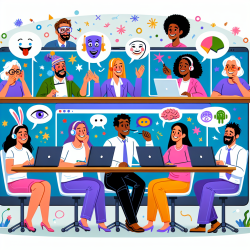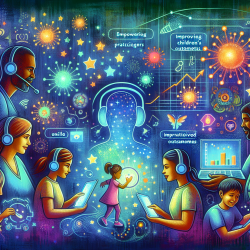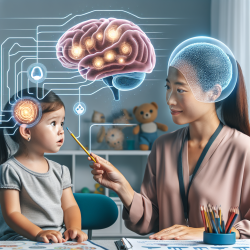Introduction: The IEP Meeting Odyssey
Welcome to the whimsical world of IEP (Individualized Education Program) meetings, where the stakes are high, the jargon is thick, and the coffee is usually lukewarm. As a Special Education Director, you know that these meetings are pivotal in crafting the educational journey of students with special needs. But who says they can't be both effective and enjoyable?
The Power of Humor
Picture this: You walk into an IEP meeting armed with data, insights, and... a joke or two. Humor is a powerful tool that can diffuse tension, build rapport, and foster a collaborative atmosphere. When used appropriately, it can transform the meeting from a dreaded obligation into a productive and even enjoyable experience.
Here's a light-hearted example: "Why don't scientists trust atoms? Because they make up everything!" While it may not be the punchline of the century, a well-timed quip can break the ice and set a positive tone for the meeting.
Data: The Backbone of Effective IEPs
While humor can set the stage, data is the star of the show. As a PHD graduate in speech-language pathology, I cannot stress enough the importance of data-driven decisions. The use of concrete data in IEP meetings ensures that the plans we create are tailored to the individual needs of each student.
Consider telepractice, for example. The flexibility and accessibility of online therapy services, such as those provided by TinyEYE, are backed by robust data demonstrating their effectiveness. Incorporating these insights into IEP discussions can help stakeholders make informed decisions that benefit students.
Telepractice: Bridging the Gap
Telepractice has revolutionized the way we approach speech therapy, providing a seamless and effective alternative to traditional in-person sessions. With the click of a button, students can access high-quality therapy services, no matter where they are. This is particularly beneficial for schools in remote areas or those facing therapist shortages.
By integrating telepractice into IEP planning, you can ensure that students receive consistent and personalized support. The data supporting telepractice is compelling, with numerous studies highlighting its success in improving speech and language outcomes.
Conclusion: Inspire with Humor and Data
In conclusion, IEP meetings don't have to be daunting. By infusing humor and relying on data-driven insights, you can inspire confidence and collaboration among all participants. As a Special Education Director, you have the power to transform these meetings into opportunities for growth and success.
So, the next time you find yourself in an IEP meeting, remember to bring your sense of humor, your data, and your passion for creating great outcomes for children. Together, we can make a difference—one IEP at a time.










